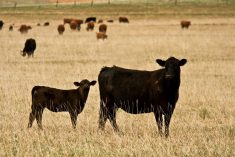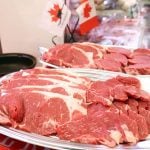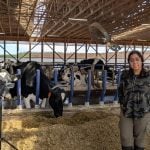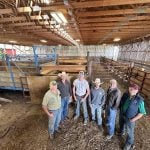Compared to last week, western Canadian yearlings traded steady to $2 higher on average while calves traded $2 higher to $4 lower. The calf market was hard to define due to limited numbers while larger supplies of yearlings were on offer in Manitoba this past week. Alberta packers were buying fed cattle on a dressed basis in the range of $300-$302 for nearby delivery and for April 2023, dressed values have been in the range of $345-$350 delivered. Strength in the deferred price structure for fed cattle is underpinning the nearby feeder complex. Major feedlot operators continue to be aggressive on quality yearling packages. Ontario operators are also stretching their hands farther west. Barley is trading up to $8.60/bu. in the Lethbridge area while corn is valued at $8.25/bu. in southern Ontario. The weather has been optimal for bringing in fresh replacements. The drier pasture conditions late in the season eroded any excess flesh on yearlings, especially on 900-plus-lb. cattle. Noted strength was evident on these heavier groups which caused abnormal price behaviour in some cases.
Read Also
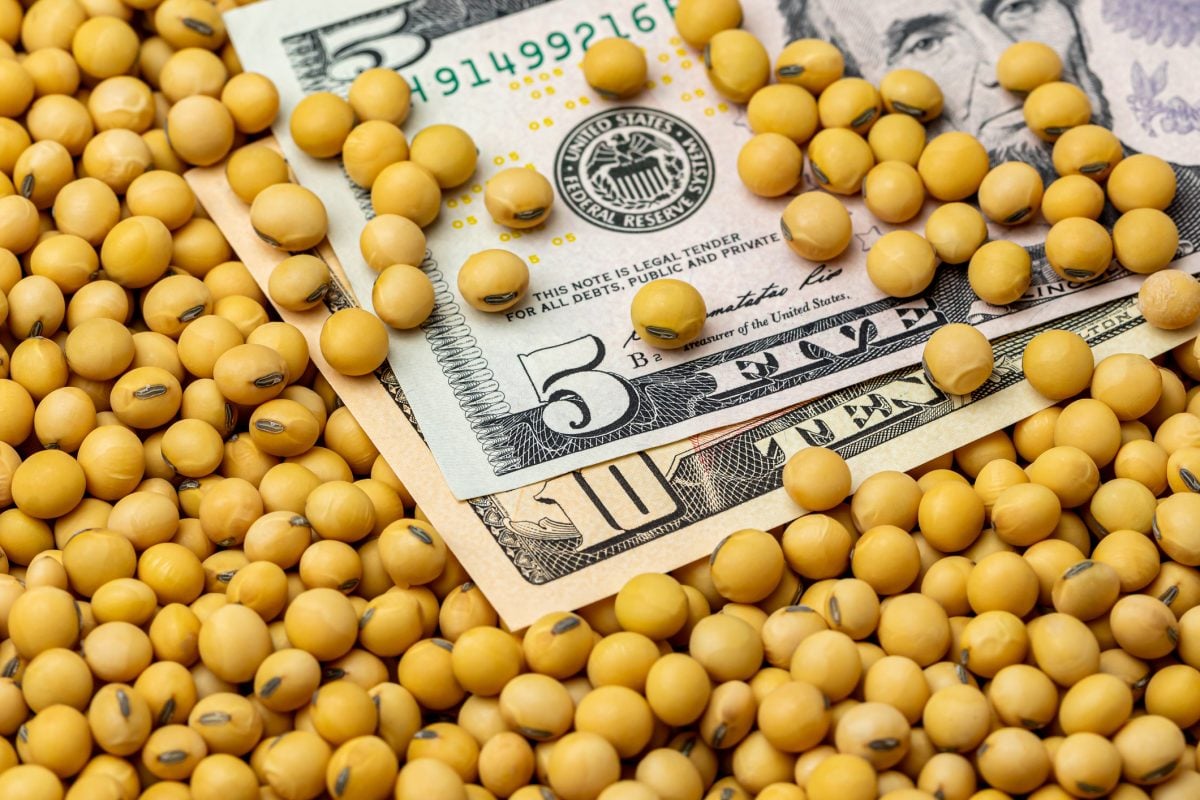
U.S. grains: Soybeans set 15-month high on U.S.-China trade deal hopes
Chicago soybean futures reached their highest in 15 months on Tuesday, briefly topping $11 a bushel on optimism that the U.S. could reach a trade deal with China as leaders from both countries are expected to meet in South Korea on Thursday.
South of Edmonton, larger-frame Angus-blended steers straight off grass with full health data weighing 940 lbs. dropped the gavel at $232. Northwest of Winnipeg, Charolais-based steers weighing 915 lbs. were valued at $224. Freight spreads to Alberta are evident in the market but some feedlot operators are willing to pay premiums on local cattle. In east-central Saskatchewan, a smaller group of larger-frame mixed yearling steers weighing 823 lbs. notched the board at $250 and Angus-based yearling heifers averaging 813 lbs. charted the course at $222. In Manitoba, a small group of black steer calves weighing 835 lbs. sold for $240.
In the Lethbridge area, a small group of larger-frame tan steers averaging 705 lbs. were valued at $262 and Simmental-based heifers weighing 720 lbs. were purchased for $218. In central Alberta, a smaller group of black steers weighing 710 lbs. were quoted at $253. Northwest of Winnipeg, tan steers stopped the scale at 713 lbs. and sold for a whopping $269.
Calf volumes were limited this past week; however, larger packages traded at a premium to smaller groups. South of Saskatoon, mixed weaned “run of the mill” steers weighing 610 lbs. were quoted at $273 and similar-quality black mixed heifers averaging 620 lbs. reportedly sold for $232. In southern Alberta, black Limousin-blended steers weighing 512 lbs. were valued at $298 and Hereford-based heifers weighing 490 lbs. charted course at $247.
The September Canadian dollar closed Friday at 75.26 U.S. cents, which is near a two-year low. Western Canada is contending with a year-over-year decrease in calf numbers and feeder cattle exports are running 109 per cent above year-ago levels. On top of this, feeder cattle imports from the U.S. (Holstein feeders) are down over 50 per cent from last year. The weaker Canadian dollar is significantly enhancing demand for western Canadian feeder cattle.
— Jerry Klassen is president and founder of Resilient Capital, specializing in proprietary commodity futures trading and market analysis. Jerry consults with feedlots on risk management and writes a weekly cattle market commentary. He can be reached at 204-504-8339 or via his website at ResilCapital.com.








